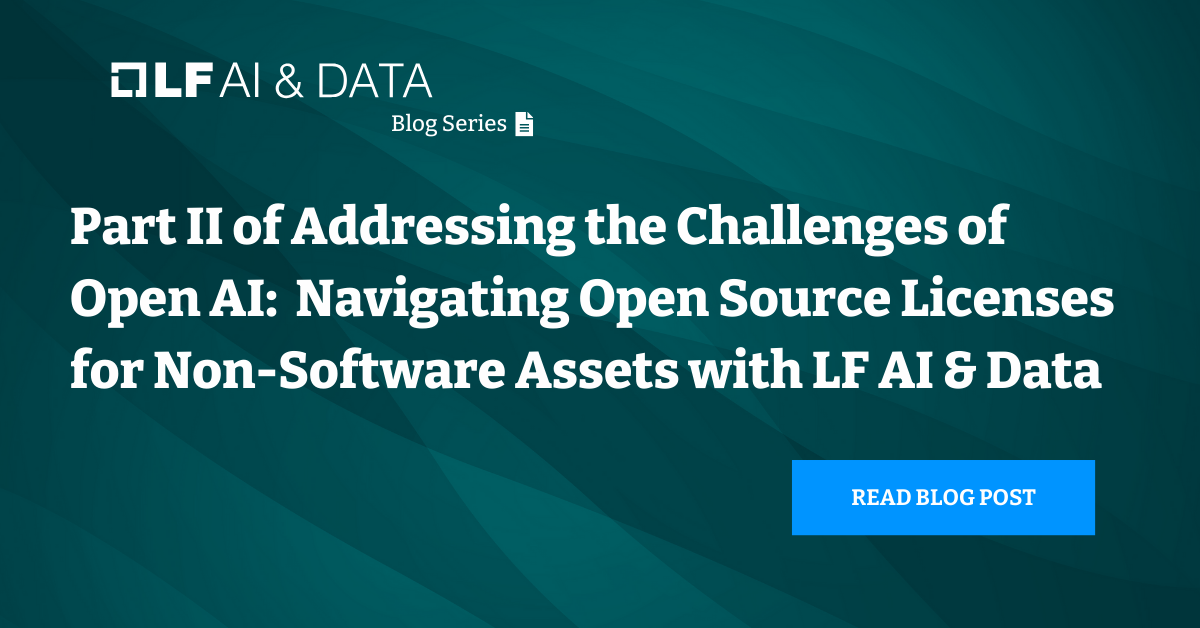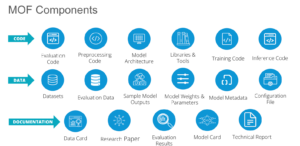
The conversation about open source has traditionally centered around software. However, the expansion of artificial intelligence and machine learning has broadened the scope to include non-software assets like data, models, and documentation. Navigating the complexities of open source licenses for these assets is crucial for fostering innovation, collaboration, and transparency. Here’s how LF AI & Data and the Model Openness Framework are paving the way.
LF AI & Data: Leading the Charge in AI Open Source
LF AI & Data is dedicated to supporting open source innovation in artificial intelligence, machine learning, and data. By fostering a neutral environment for collaboration, LF AI & Data enables developers, researchers, and organizations to create and adopt open-source AI tools and standards.
The Role of the Model Openness Framework
The Model Openness Framework is an initiative that outlines best practices and guidelines for the openness of AI and machine learning models. The Model Openness Framework (MOF) guides researchers and developers who want to enhance model transparency and reproducibility while allowing permissive usage. It removes ambiguity by clarifying the availability of components, licensing, and suitability for commercial use without restrictions.
Open Source Licenses for Non-Software Assets
Open source licenses, traditionally used for software, are now being adapted for non-software assets. Here’s how they apply:
-
Data
Data is the backbone of AI and ML models. Open data licenses, allow data to be shared and reused while ensuring proper attribution and use conditions. LF AI & Data encourages the use of these licenses to foster collaboration and innovation.
-
Models
Depending on their form, AI models can be considered both software and non-software assets. The Model Openness Framework provides guidelines on licensing models to ensure they are freely available and can be modified or built upon.
-
Documentation
Documentation is essential for understanding and using AI models and datasets. Open access licenses are ideal for documentation, ensuring users can share, adapt, and build upon the work, provided they give appropriate credit.
Benefits of Open Source Licenses for Non-Software Assets
- Transparency
Open licenses ensure that the development process is transparent, enabling scrutiny and improvement.
- Collaboration
They promote collaboration across different organizations and disciplines, leading to more robust and diverse AI solutions.
- Innovation
Open licenses remove barriers to innovation, allowing more people to contribute to and benefit from AI advancements.
- Trust
They build trust in AI systems by making the underlying data, models, and methodologies accessible and understandable.
While open source licensing for non-software assets offers many benefits, it also presents challenges:
- Legal Uncertainties
The legal landscape for licensing non-software assets is still evolving, and organizations must navigate these uncertainties carefully.
- Quality Control
Ensuring the quality and integrity of open data and models can be challenging, requiring robust governance frameworks.
- Commercial Viability
Balancing openness with commercial interests can be tricky, especially for organizations looking to monetize their AI innovations.
Conclusion
LF AI & Data and the Model Openness Framework are at the forefront of promoting the use of open source licenses for non-software assets. By adopting these licenses, the AI community can enhance collaboration, innovation, and trust in AI technologies. As we continue to explore the potential of AI, understanding and implementing these licenses will be crucial in shaping a more open and equitable future.
The next blog will discuss the diverse restrictions including the use of Acceptable Use Policies in Open AI.
To learn more and get involved:


